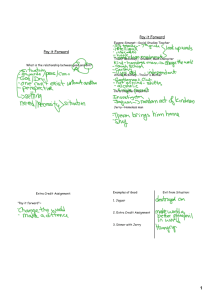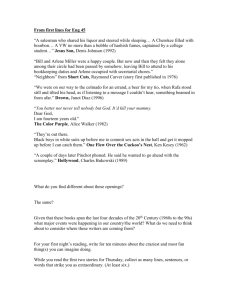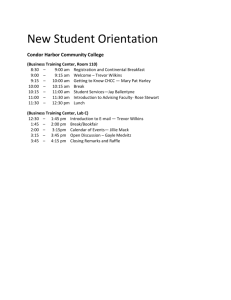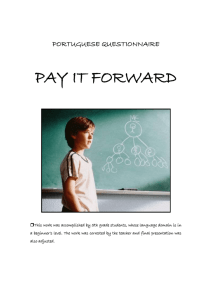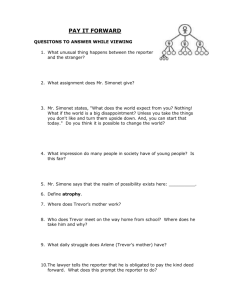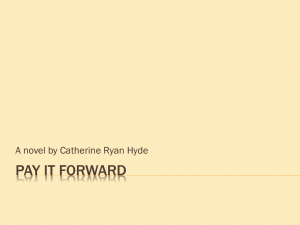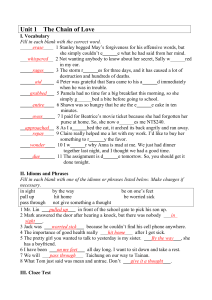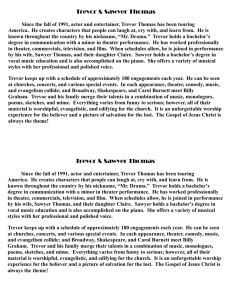PAY IT FORWARD
advertisement
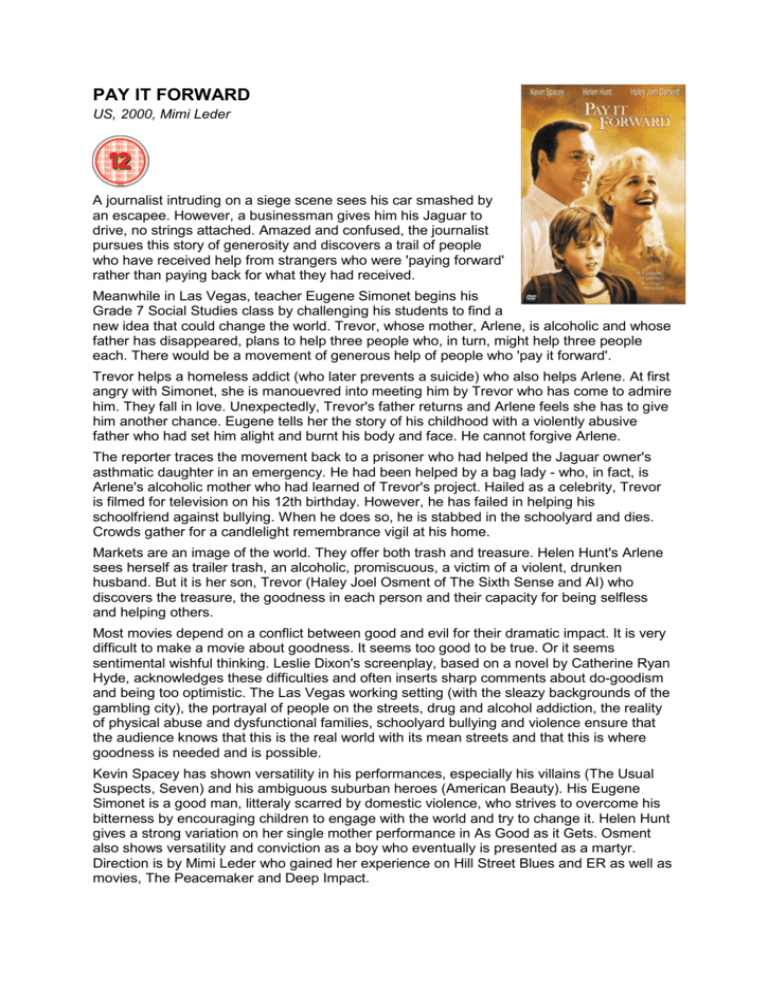
PAY IT FORWARD US, 2000, Mimi Leder A journalist intruding on a siege scene sees his car smashed by an escapee. However, a businessman gives him his Jaguar to drive, no strings attached. Amazed and confused, the journalist pursues this story of generosity and discovers a trail of people who have received help from strangers who were 'paying forward' rather than paying back for what they had received. Meanwhile in Las Vegas, teacher Eugene Simonet begins his Grade 7 Social Studies class by challenging his students to find a new idea that could change the world. Trevor, whose mother, Arlene, is alcoholic and whose father has disappeared, plans to help three people who, in turn, might help three people each. There would be a movement of generous help of people who 'pay it forward'. Trevor helps a homeless addict (who later prevents a suicide) who also helps Arlene. At first angry with Simonet, she is manouevred into meeting him by Trevor who has come to admire him. They fall in love. Unexpectedly, Trevor's father returns and Arlene feels she has to give him another chance. Eugene tells her the story of his childhood with a violently abusive father who had set him alight and burnt his body and face. He cannot forgive Arlene. The reporter traces the movement back to a prisoner who had helped the Jaguar owner's asthmatic daughter in an emergency. He had been helped by a bag lady - who, in fact, is Arlene's alcoholic mother who had learned of Trevor's project. Hailed as a celebrity, Trevor is filmed for television on his 12th birthday. However, he has failed in helping his schoolfriend against bullying. When he does so, he is stabbed in the schoolyard and dies. Crowds gather for a candlelight remembrance vigil at his home. Markets are an image of the world. They offer both trash and treasure. Helen Hunt's Arlene sees herself as trailer trash, an alcoholic, promiscuous, a victim of a violent, drunken husband. But it is her son, Trevor (Haley Joel Osment of The Sixth Sense and AI) who discovers the treasure, the goodness in each person and their capacity for being selfless and helping others. Most movies depend on a conflict between good and evil for their dramatic impact. It is very difficult to make a movie about goodness. It seems too good to be true. Or it seems sentimental wishful thinking. Leslie Dixon's screenplay, based on a novel by Catherine Ryan Hyde, acknowledges these difficulties and often inserts sharp comments about do-goodism and being too optimistic. The Las Vegas working setting (with the sleazy backgrounds of the gambling city), the portrayal of people on the streets, drug and alcohol addiction, the reality of physical abuse and dysfunctional families, schoolyard bullying and violence ensure that the audience knows that this is the real world with its mean streets and that this is where goodness is needed and is possible. Kevin Spacey has shown versatility in his performances, especially his villains (The Usual Suspects, Seven) and his ambiguous suburban heroes (American Beauty). His Eugene Simonet is a good man, litteraly scarred by domestic violence, who strives to overcome his bitterness by encouraging children to engage with the world and try to change it. Helen Hunt gives a strong variation on her single mother performance in As Good as it Gets. Osment also shows versatility and conviction as a boy who eventually is presented as a martyr. Direction is by Mimi Leder who gained her experience on Hill Street Blues and ER as well as movies, The Peacemaker and Deep Impact.
